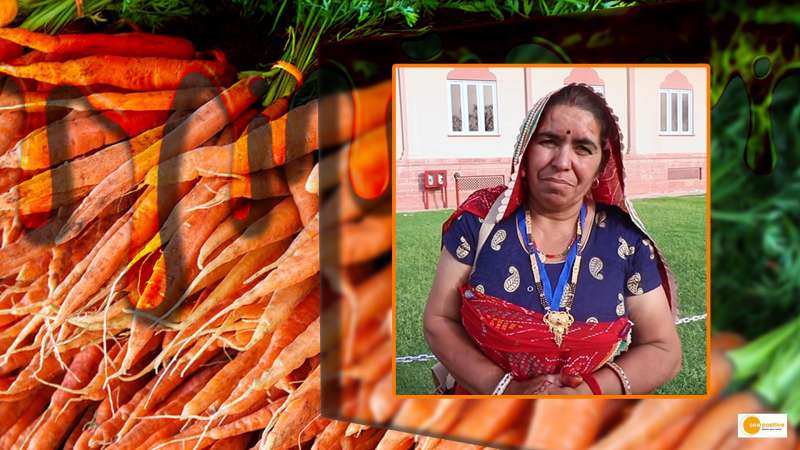

Santosh Pachar of Jhigar Badi village in Rajasthan’s Sikar district, like all other farmers, wanted her to produce to be the best in the market. Santosh, a traditional farmer, only completed Class 8 of his education.
“Beginning in 2002, we used organic farming methods to grow carrots and other traditional crops on our 30 bighas (about 10 acres) of land. However, we were unable to achieve the desired outcome.
The carrots were frequently thin and crooked, which I noticed. They failed to attract customers in the market, which resulted in lower profits. “I couldn’t even make a living,” she says.
Her experiments, however, were recognized today with the President’s Award for her innovative carrot-growing techniques, which included a prize of Rs 3 lakh.
Ghee and honey to the rescue
“My husband and I had no solution for the poor quality produce,” Santosh says. I began attending agricultural fairs organized by the State Government to gain a better understanding of farming and to find a solution to our problems.
It assisted me in learning more about farming.”Santosh discovered that the seeds she used to grow carrots were of poor quality, which was the cause of her disappointing yield, thanks to her newly acquired knowledge and interactions with experts.
She decided to solve the problem herself. Santosh began using a new pollination technique that involved mixing 15 mL honey with 5 mL ghee (Indian butter) and drying them without direct sunlight exposure.
“Vegetables and fruits are alive.” And, because we absorb nutrients from food, I combined honey and ghee with carrot seeds in the hopes that the ghee would add shine and the honey would enhance the sweetness of the carrot,” Santosh says.
Santosh experimented with the seeds, and after a few harvests, she noticed a noticeable difference. “The carrots were sweeter and shinier than usual.” Their size and shape were also getting better.”
According to Santosh, it took years for the seed to evolve into a higher-quality product.
“We processed and replanted seeds from the fresh harvest using a newer version of the seeds.”
The experiments began in 2002, and we were able to declare the characteristics and features of these newly evolved seeds in 2010.
“Unbeknownst to us, we were using a scientific method known as grading to improve seed quality,” she explains.
She adds that her new carrot variety could produce in 75 days, about 15 days earlier than the previous seeds, because they germinated quickly and ranged in size from 1.5 to 2.5 feet.
The couple gave the samples to their neighbors, who were pleased with the quality
“We shared some seeds with state agriculture officers, who tried and tested the seed before declaring it an entirely new variety.”
“It’s called SPL 101,” she adds. The couple began selling carrots and established a nursery to raise saplings from the seeds. “We began earning 1.5 times as much profit as before.”
With the old, low-quality seeds, the couple earned about Rs 1.5 lakh per year. However, the new variety now earns them around Rs 20 lakh per year. “Our income has increased 20 times over the years,” she says.
She also received the President’s Award for her innovative practices in 2013 and 2017
Santosh has since trained over 7,000 farmers in the state to grow carrots organically. Santosh’s years of hard work have paid off handsomely for her and thousands of others.
Also Read: The Chief Minister of Odisha distributes Rs 800 crore in financial aid to 40 lakh farmers


